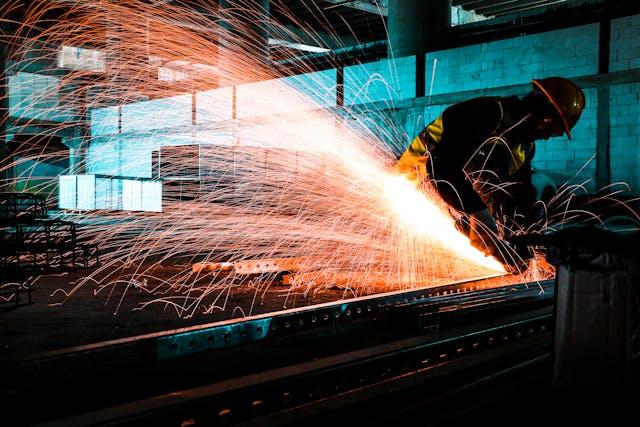The Rise of the Machines: How Metal Fabrication Technology Is Shaping Industries
Imagine a metal fabrication facility, unlike anything you've seen before. Gone are the days of solely manual labor and roaring fires. Today, robotic arms with inhuman precision wield cutting-edge tools, while computer-controlled lasers trace intricate designs onto sheets of metal. This is the reality of modern metal fabrication a world shaped by the relentless rise of technology. The traditional image of a metalworker, hunched over a forge with a hammer in hand, is slowly fading as advanced machines take center stage, transforming entire industries.
From Manual Labor to Automation: A Look at Evolving Technologies
Metal fabrication has come a long way from its rudimentary beginnings. Technological advancements have introduced a new era of efficiency and precision, with some of the most significant innovations including:
- CNC Machining: Gone are the days of meticulous manual operation. CNC (Computer Numerical Control) machining utilizes computer programs to control every aspect of a machine's movement. This allows for unparalleled precision and repeatability, ensuring consistent high-quality parts, even for complex designs.
- Laser Cutting: Imagine a cutting tool so precise it can create intricate designs on metal with a clean, polished finish. Laser-cutting technology has revolutionized the industry, offering unparalleled speed and accuracy. High-powered lasers can slice through various metals, enabling the creation of complex shapes and components that were previously impossible.
- Robotic Welding: Welding is no longer a solely human endeavor. Robotic welding systems have become increasingly sophisticated, performing welds with exceptional consistency and speed. This not only improves productivity but also enhances safety in environments where human welders might face hazards.
- 3D Printing for Metal: While still in its early stages, 3D printing for metal is a groundbreaking technology with the potential to revolutionize metal fabrication entirely. This emerging technology allows for the creation of complex metal parts directly from digital models, opening doors for innovative designs and lighter, more efficient components.
Shaping Industries: The Impact of Advanced Metal Fabrication
The advancements in metal fabrication technology are not happening in a vacuum. They are fundamentally reshaping various industries, with some of the most significant impacts being felt in:
- Aerospace: The relentless pursuit of lighter, stronger aircraft for improved fuel efficiency and payload capacity is heavily reliant on advanced metal fabrication. New materials and processes allow for the creation of lighter, more durable components for airplanes, pushing the boundaries of aerospace engineering.
- Construction: Prefabricated metal building components, enabled by advanced fabrication techniques, are streamlining the construction process. This translates to faster construction times, reduced costs, and improved overall efficiency in the building industry.
- Automotive: The quest for lighter, more fuel-efficient vehicles is fueled in part by innovative metal fabrication techniques. Advanced materials and processes allow for the creation of lighter, stronger components for cars, leading to significant improvements in fuel economy and overall performance.
- Consumer Electronics: The ever-shrinking size and increasing complexity of electronic devices rely heavily on precision metal fabrication. Advanced technologies enable the creation of intricate metal components that are essential for the miniaturization and functionality of modern consumer electronics.
The Human Factor: Collaboration, not Replacement
It's important to emphasize that the rise of advanced machines in metal fabrication does not signal the end of human involvement. These technologies are not meant to replace skilled workers, but rather to collaborate with them. The human element remains crucial for tasks like design, programming, operation, and maintenance of these sophisticated machines. In fact, the growing demand for skilled workers who can operate, maintain, and program these advanced technologies highlights the evolving role of humans in the metal fabrication industry.
Where to Buy Advanced Metal Fabrication Machines
Equipping your metal fabrication operation with the right technology is an investment in your future success. But navigating the world of advanced metal fabrication machines can be daunting. This is where reputable suppliers like Onix Machinery come in.
Catch Onix Machinery Sales now offers a wide selection of cutting-edge metal fabrication machines to suit your specific needs and budget. Whether you're a seasoned professional or just starting, their knowledgeable team can help you find the perfect equipment to take your projects to the next level.
Conclusion
The rise of the machines in metal fabrication is not a cause for alarm, but rather a testament to human ingenuity. Advanced technologies are transforming entire industries, pushing the boundaries of what's possible. As metal fabrication continues to evolve, one thing remains constant: the human spirit of innovation that drives this remarkable transformation. Explore how this technology can empower you to bring your metal fabrication ideas to life.

